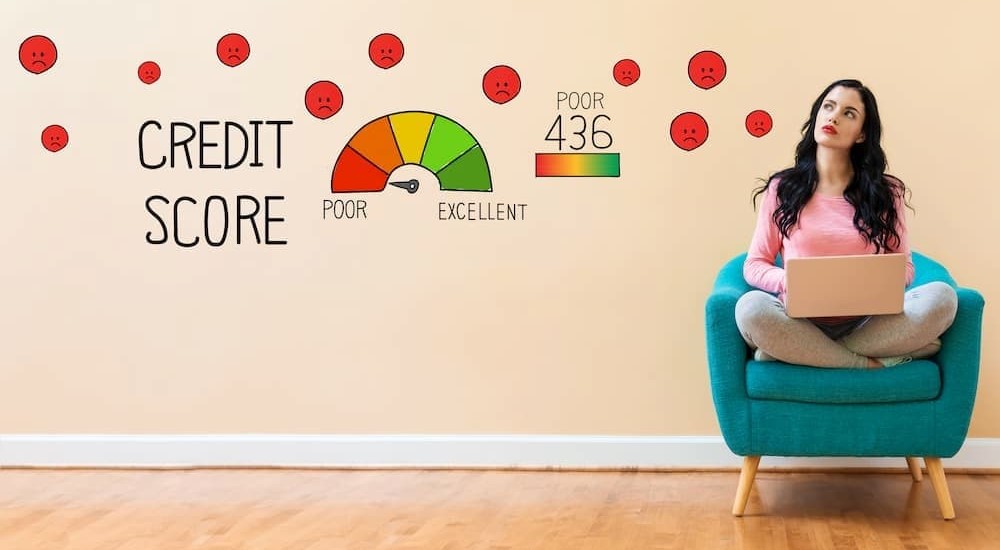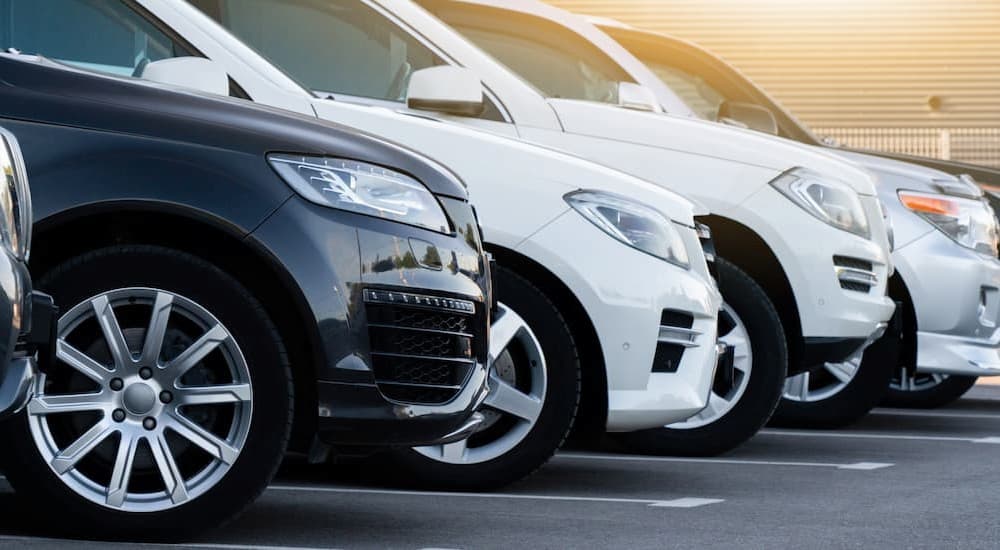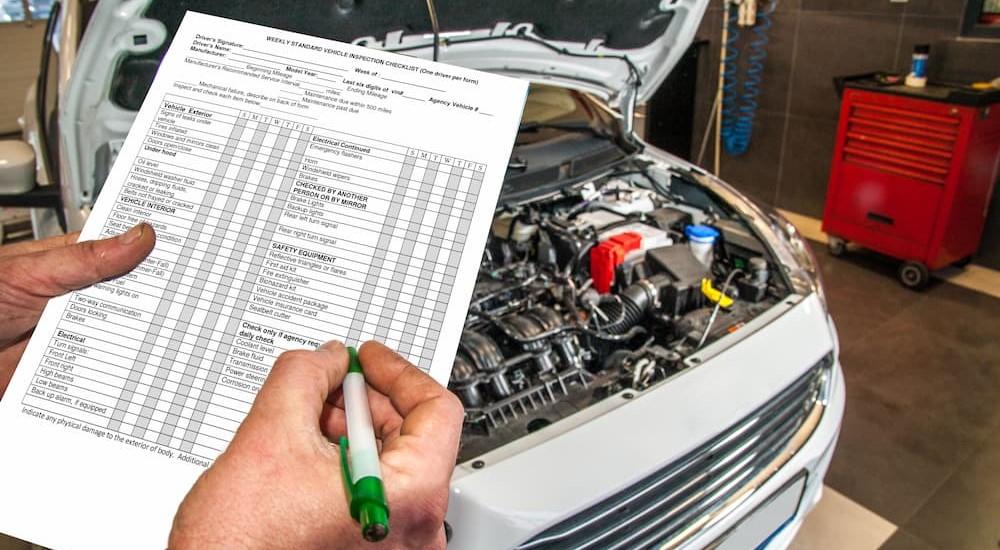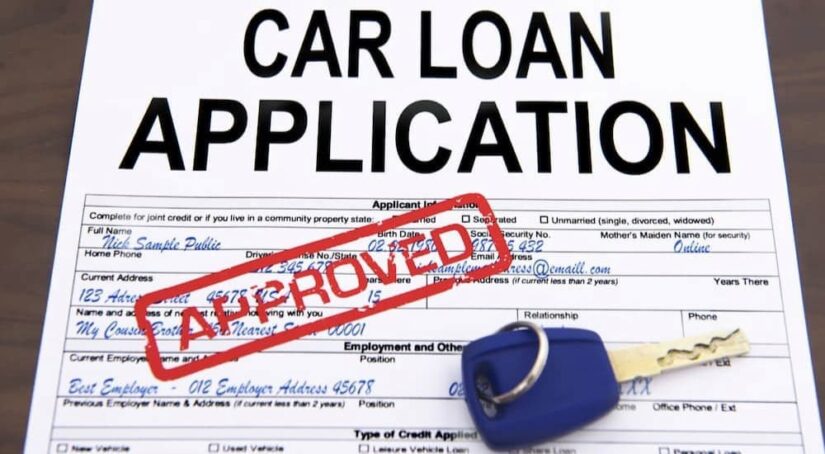Buying a new, used car can be a daunting experience with many obstacles that must be overcome. Yet, despite the tricky nature of second-hand buying, more drivers are buying quality pre-owned vehicles from a used car dealership. In fact, according to recent data, used car sales reached 1.8 million in 2022, with many even choosing to buy their car in cash.
Unfortunately, prices for used cars are higher than ever (unless you know where to look), meaning purchasing a problematic used car can quickly become an incredibly expensive problem. Luckily, if you know more about a few car shopping do’s and don’ts, you’re less likely to be left with heartache, frustration, and a significantly lighter purse. So let’s dive into the do’s and don’ts of buying your first pre-owned vehicle.
What Are the Dos of Buying Your First Used Car?
Below you will find a few of the car buying “do’s” that will ensure you walk away from a used car dealer’s lot with a purchase you’ll be happy you made.

Do: Ensure You Do Your Research Beforehand
One of the common mistakes individuals make when searching for a new, used vehicle is failing to do their research. There are hundreds––if not thousands––of cars for sale, and it can easily become confusing if you’re looking from one car to the next in a continuous cycle of drudgery.
To save yourself from this headache, it’s best to first decide what vehicle you want. For example, are you looking for a roomy family car like an SUV that can tow a motorhome or a camping trailer, or do you need a workhorse like a heavy-duty pickup truck that can handle the laborious tasks your job requires? Once you know the answer to this question, you can investigate which vehicle in these categories catches your eye, piques your interest, and meets your needs.
With the car type nailed down, you need only evaluate your other needs, like if you need a vehicle with good gas mileage or if you want one that’s eye-catching and likely to get you noticed. So start by looking at the vehicles you like on used car dealer websites, read online reviews, and then speak with a representative to learn as much as possible before deciding.
Do: Consider the Total Costs of Ownership
Ownership is more than having your name on the title deed, and so many people forget that there are numerous ownership costs involved with having a car to call your own. For example, you mustn’t only consider how much the vehicle is worth when beginning your search. You also need to consider if there are any hidden fees associated with purchasing the vehicle.
In addition, you must consider car loan payments, monthly installment interest rates, vehicle insurance, and the cost to maintain your vehicle to ensure you qualify for a fair trade-in value when you’re ready for your next car purchase a few years down the line.
Failing to consider these ownership aspects can land you in automotive hot water, somewhere you don’t want to be.

Do: Determine Your Credit Score and Get Pre Approval
You need to consider learning your credit score to buy a new, used car. This is because your credit score can directly impact whether you are pre-approved or approved for financing through a traditional institution like a bank or a used car dealer.
Most times, if you cannot afford to pay the entire sum upfront, you will need an auto loan, and to qualify for one, you need to have good credit that demonstrates you aren’t a risky investment for a lender. Regrettably, if you have a low credit score, there is a high chance you won’t be approved for a car loan, but this isn’t always the case. Luckily, there are several things you could do to improve your low credit score and increase your chances of being immediately approved for a new, used car.
For example, if you have an unfavorable credit score but have a co-signer or are willing to accept a higher interest rate on your loan, you may walk off the lot in your dream car. Many institutions can help you get a credit report showing your score, which can help you determine what cars you can afford monthly. You could also apply for pre-approval at a used car dealership, which will help you better understand the vehicles in your price range.
What Are the Don’ts of Buying Your First Used Car?
Now that you know more about the dos of buying a new, used car, it’s time to look at the don’ts. If you keep the below in mind when shopping for a new vehicle, you have a better chance of finding the car that meets your needs, wants, and preferences.
Don’t: Disregard Your Budget
We’re not all millionaires or within the top 10% of earners in the US, and there’s nothing wrong with that. The only downside is that this can make it harder for individuals to narrow their car budget. Overspending on a vehicle you can’t afford could put you in debt that you might not be able to come out of.
Additionally, many people don’t realize overspending is more than simply buying a car outside your price range. It includes paying the many other monetary amounts you might not have immediately calculated into the cost of your car.
For example, you might not know that buying a more expensive car almost certainly means having a more expensive interest rate on your car loan unless you have incredibly good credit. This means that the extra three thousand you were paying could turn into four thousand before you know it, so be careful of this when budgeting.
Don’t: Forget to Inspect the Car You Want and Test Drive It
The old saying “try before you buy” is incredibly important to remember when car shopping––especially if you seek a quality pre-owned vehicle. Basically, a test drive is necessary. It’s also crucial to always inspect the vehicle you’re interested in purchasing, if not yourself, then with the assistance of a qualified mechanic.
It can be tempting to trust a seller and the images they have displayed online or the neat car they present you, but there’s no way to know what’s lying under the surface until you drive it and check it out. Some things you need to keep an eye out for include rust underneath the undercarriage, damp spots, interior seat tears, and electric wires hanging loose. You should also check leaks underneath the car and near the engine, and any noises, strange smells, or failing components.
Should you fail to thoroughly inspect the used car you want to buy, you risk running into numerous mechanical, electrical, cosmetic, or construction materials down the line costing you precious time and money you might not have. After all, you don’t want to be left with an expensive garage ornament that takes up space and reminds you of how trust can go oh so wrong.

Don’t: Forget to Look at the Vehicle History
A car’s vehicle history is one of the most vital documents an individual can possess when evaluating a used car purchase. This is because vehicle history reports can tell potential buyers everything they might not be able to see when looking at a vehicle.
For example, a vehicle history report can reveal if the car was in any prior accidents and how long ago. It can also tell prospective buyers if the vehicle has flood, hail, or snow damage. In addition, this report also often reveals how many owners the vehicle has had, the actual mileage, recall checks, service history, and VIN verification. Essentially, it ensures you’re not likely to encounter any nasty surprises that could set you back a few thousand dollars.
Fortunately, vehicle history reports are inexpensive but not always exhaustive, so keep this in mind. Moreover, most used car dealers will have obtained one for the vehicles they are selling, so you can request one and make a better decision about your potential used car investment.
Happy Used Car Hunting
Buying anything, let alone a used car carries its risks, but this doesn’t mean you should put your dreams of owning a quality pre-owned vehicle on the back burner. If you take the right steps and avoid mistakes in the purchasing process, you’re unlikely to experience buyer’s remorse. So try and remember what you have learned today and make an informed decision when you’re ready to take the leap and sign on the dotted line for your first used car.



